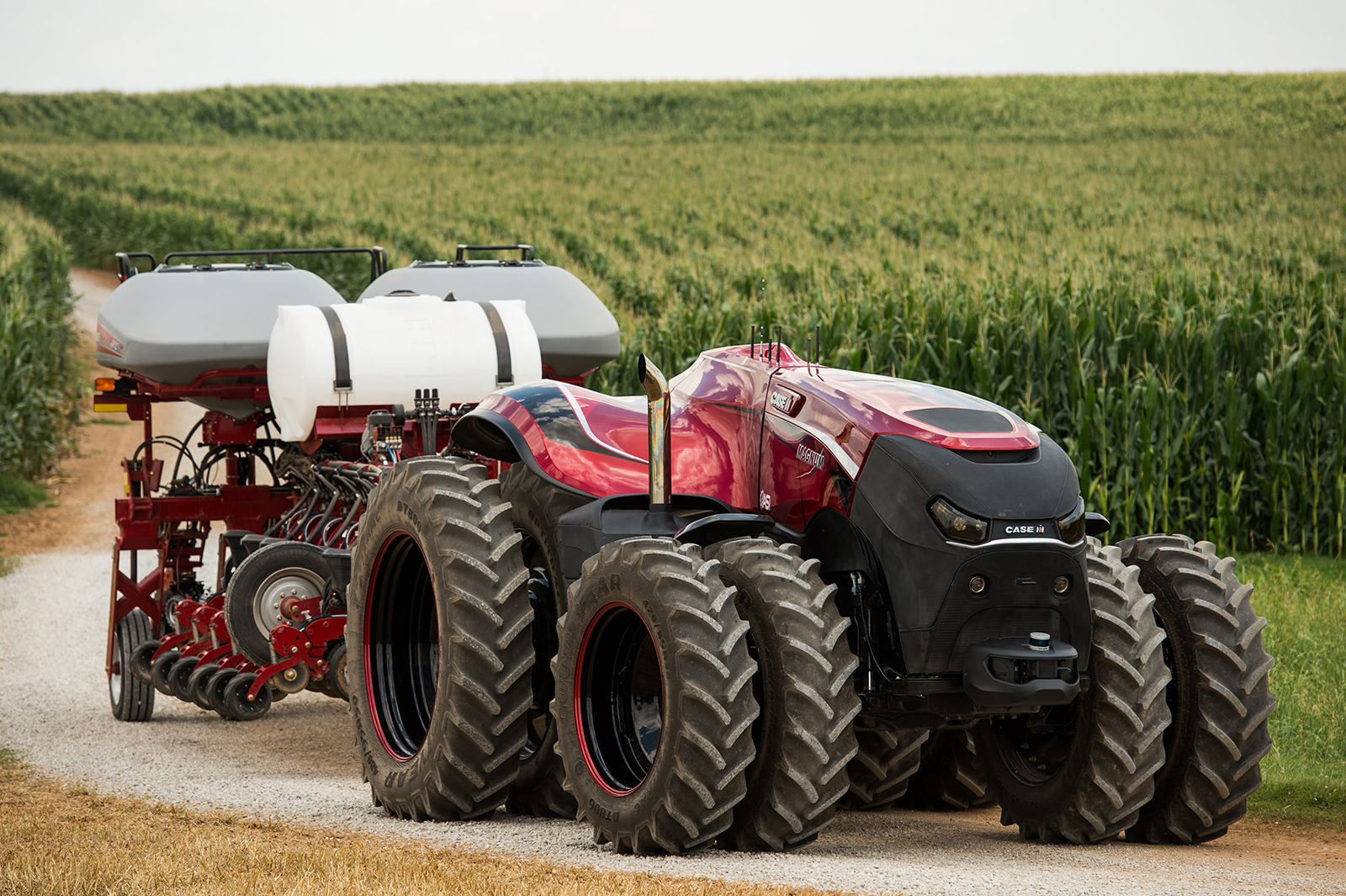1MG FlippingBooks
Machinery and vehicles: the rise of autonomy
Over the next few months, and as a precursor to the launch of Volume II of The Australian Farmer , we will be taking a look at the latest technology and innovation in a number of agricultural segments and talking to some of the leading voices in the industry. This is the second article in our series on machinery and vehicles, this time focusing on the growing role of autonomous vehicles and the race towards full autonomy.
Self-driving tractors and other autonomous farm vehicles are often heralded as the future of farming. The reasons for this are obvious – in theory, autonomous vehicles offer reduced labour costs, greater precision and efficiency and give the farmer more time to deal with other issues.
One of many major players in the autonomous farm vehicle space is Case IH, which brought its American-designed Autonomous Concept Vehicle (ACV) out to Australia for AgQuip last year. A glimpse into the future of agriculture, the ACV is a fully autonomous tractor that is helping Case IH to understand the next steps towards full autonomy. By showcasing the ACV at AgQuip, Case IH was able to meet with Australian farmers and understand how expectations and conditions differ to those experienced in the US.
“Australian farmers on the whole are some of the most innovative farmers in the world,” says Case IH Product Specialist Andrew Kissel. “If you look at technology adoption, Australian farmers are usually on the cutting edge, out in front of everybody else.”
Building on the knowledge gained from the ACV, Case IH is currently trialling an autonomous tractor pilot program with Bolthouse Farms, one of North America’s largest carrot producers. The goal is to allow the vehicles to handle repetitive tasks such as tillage and thus gain feedback from agronomists and operators on how to develop and improve the vehicles.
While the technology that allows potentially game-changing full autonomy (tractors and other vehicles that need absolutely no human operation or supervision to complete tasks) is still a few years away from being commercially available, autonomous features such as autosteer and GPS guidance are now commonplace. One of the biggest advantages that full autonomy offers over human operation – even of a vehicle equipped with autosteer or guidance technology – is absolute consistency.
“If a machine is doing the control, we can be very consistent on every pass – it doesn’t matter if you’re on hour one of your shift or hour 16,” says Kissel. “When it’s time to check population or lift an implement, a computer isn’t going to fall asleep, or get a bit lazy or change their speed because they’ve got a date that evening. It’s a lot more consistent and regular than human operation.”
The enthusiasm for automated technology and the benefits it offers has created something of a race to market among major farm machinery players such as Case IH, New Holland and Massey Ferguson. However, before Australian farmers get too excited, Kissel is keen to stress that a fully automated solution is still a few years off yet.
“There are a lot of intermediate steps before we get to something like the ACV being a commercially viable option,” he says. “There are too many pieces to the puzzle that are really outside of our control, and it’s important not to be the first company to market, but the first one who can get it right and provide a comprehensive and efficient solution.”















